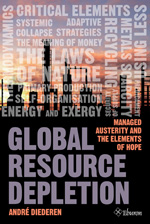OK, so I am the first one to admit that humans have tinkered with animal’s and plant’s genetics for a 100,000 years before we even knew what genes were. The most famous was the creation or the domestication of wolfs. If you feed them and they did not bite you they got to stay. If they bit you, you killed it and got another one. Made sense when a friendly wolf bred with another friendly wolf, the puppies would be more friendlier. Same with cattle. Breed a big cow with another bigger cow and you get bigger stronger cows. But this process many times took 100s of years and you had time to figure out whether it was safe or not. This is now happening in a single year’s time. There is no telling what we could be unleashing on ourselves. Worse yet, the big players in this area are some of the worst players on the planet. Monsanto, Dow, BSF. Companies known to be rapists of the planet.
http://www.good.is/post/feast-your-eyes-the-atlas-of-genetically-modified-crops1/
Feast Your Eyes: The Atlas of Genetically Modified Crops

Yesterday, the International Service for the Acquisition of Agri-biotech Applications, a nonprofit organization funded in large part by the biotech industry, issued a new report on the status of genetically modified crops around the world.
The Economist has used ISAAA’s data to make a map showing where in the world GM crops are grown. As you can see, the United States is by far the leader in the field, with 165 million acres (66.8 million hectares) of GM crops under cultivation, an increase of nearly 7 million acres on 2009 levels.
Clive James, ISAAA’s director and founder, told the BBC that more than 15 million farmers grow GM crops, and that, “during 2010, the accumulated commercial biotech plantation exceeded one billion hectares [2.47 billion acres]— that’s an area larger than the U.S. or China,” and equivalent to 10 percent of the world’s arable land.
Meanwhile, The Economist pointed out an interesting trend:
Developing countries are planting GM crops at a more rapid rate than rich countries. Brazil has added some 10m hectares [24.7 million acres] since 2008 and overtook Argentina as the second-biggest grower in 2010. India, too, increased its area by over 10 percent last year. The most popular crop is soya, while the most common modification is tolerance to herbicides.
With the European Union having just voted to allow animal feed imports containing up to 0.1 percent GM seeds (previously shipments found to contain any trace of non-approved biotech crops were turned away upon arrival at port), it does indeed seem—for better or for worse—as though GM crops are here to stay.
Chart via The Economist.
:}




 Iran’s controversial nuclear plant near the southern Iranian city of Bushehr. The country has begun a weeks-long process to fuel its reactor. (Majid Asgaripour / AFP Getty Images)
Iran’s controversial nuclear plant near the southern Iranian city of Bushehr. The country has begun a weeks-long process to fuel its reactor. (Majid Asgaripour / AFP Getty Images)